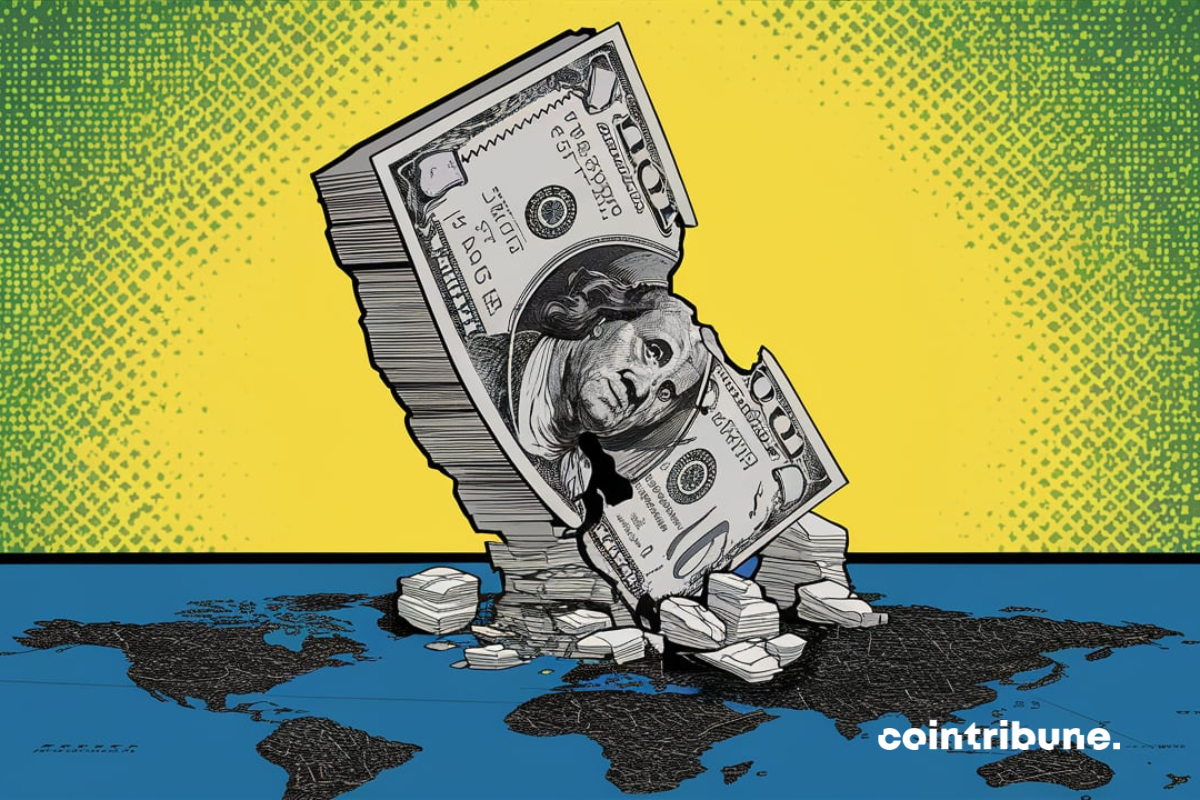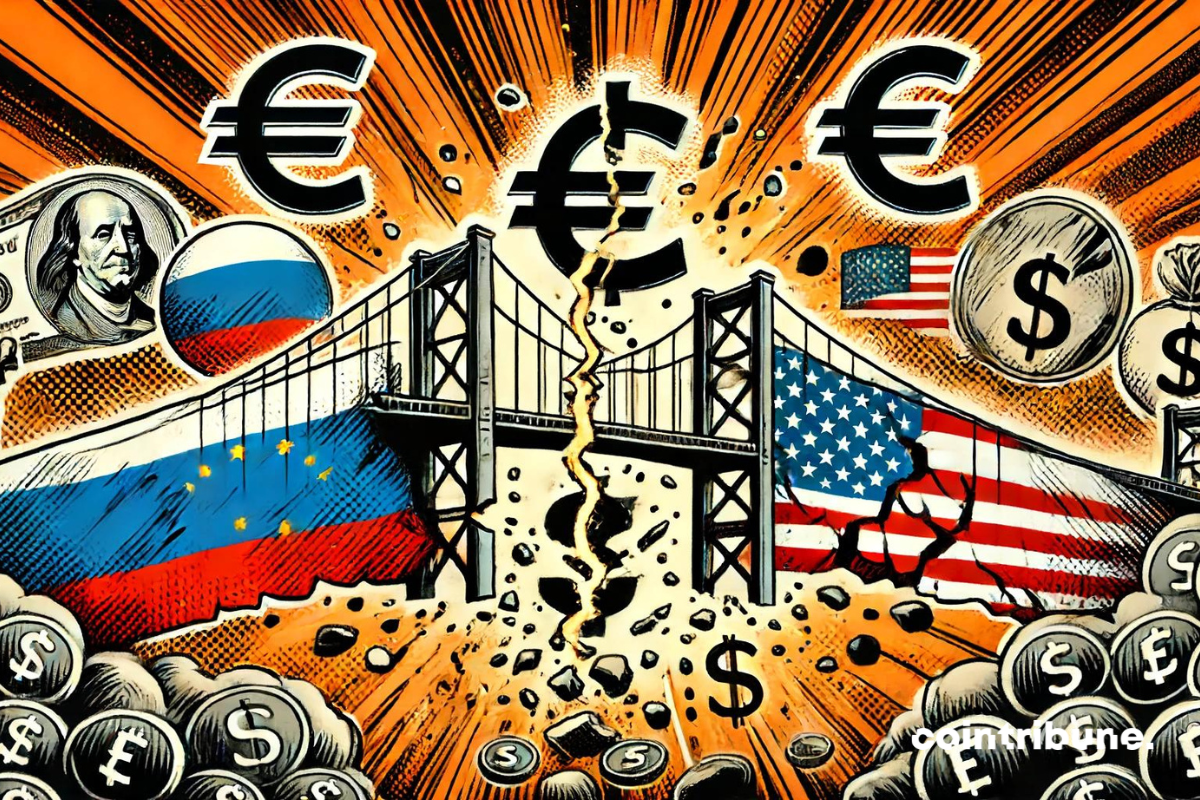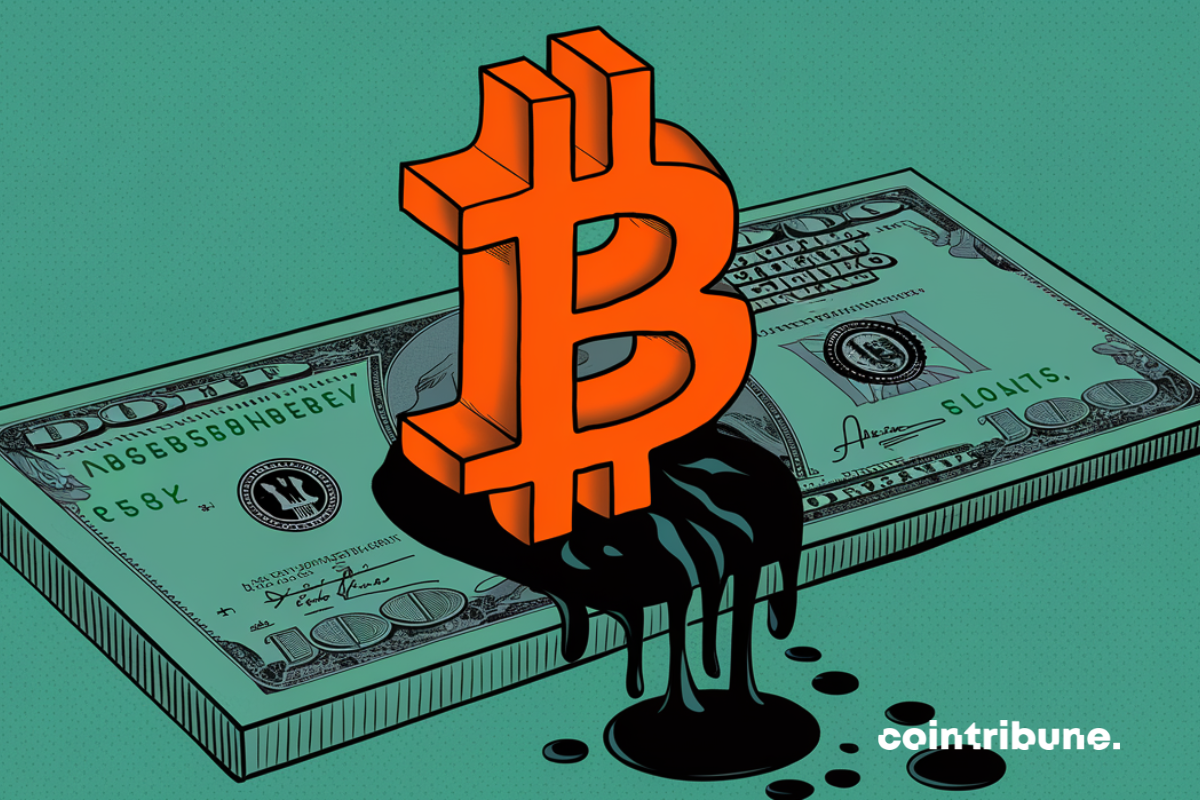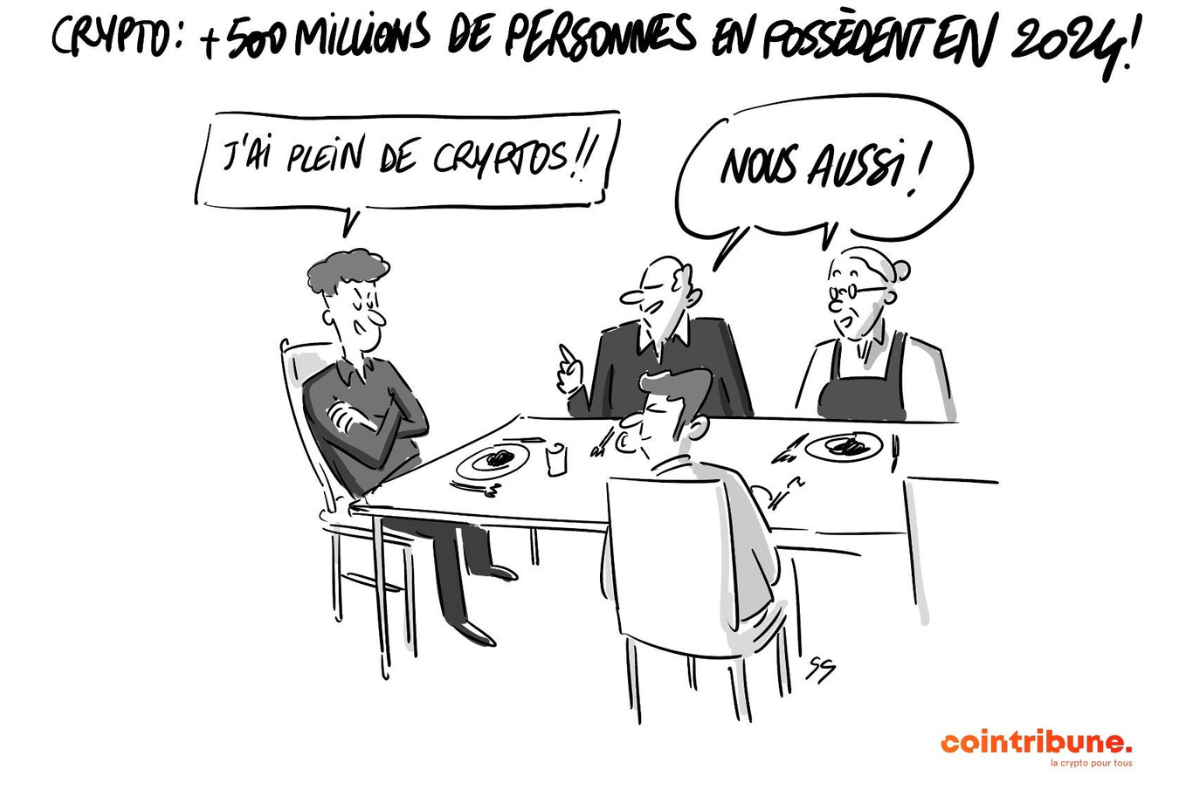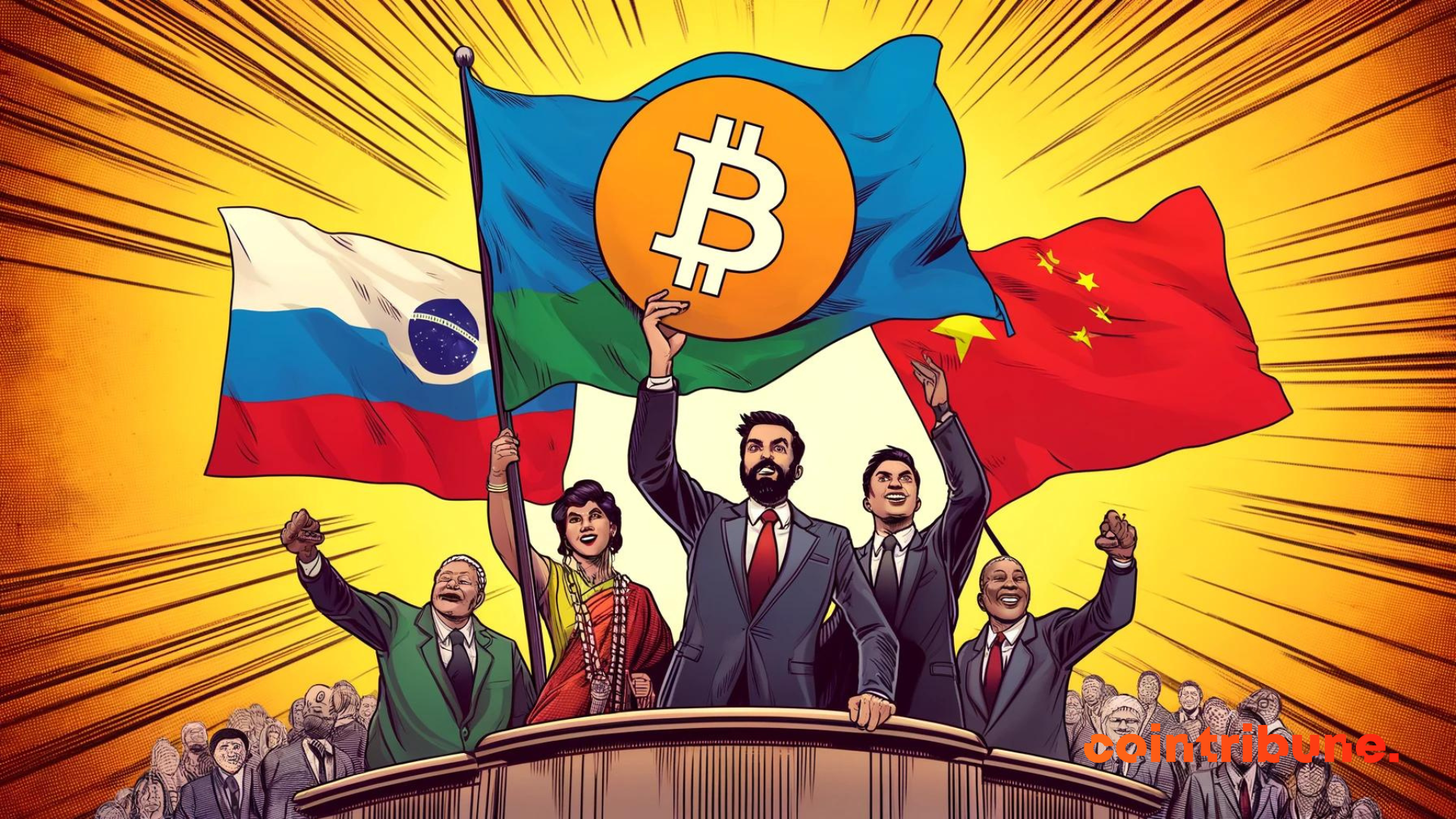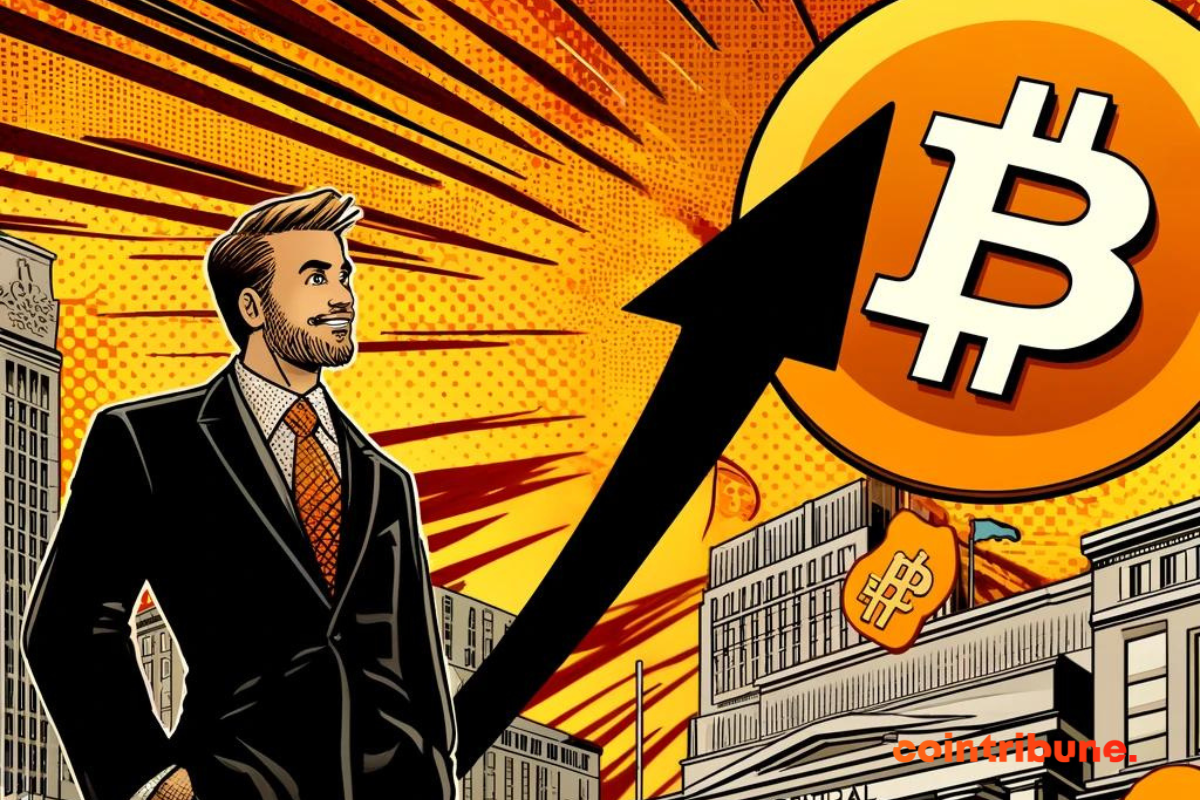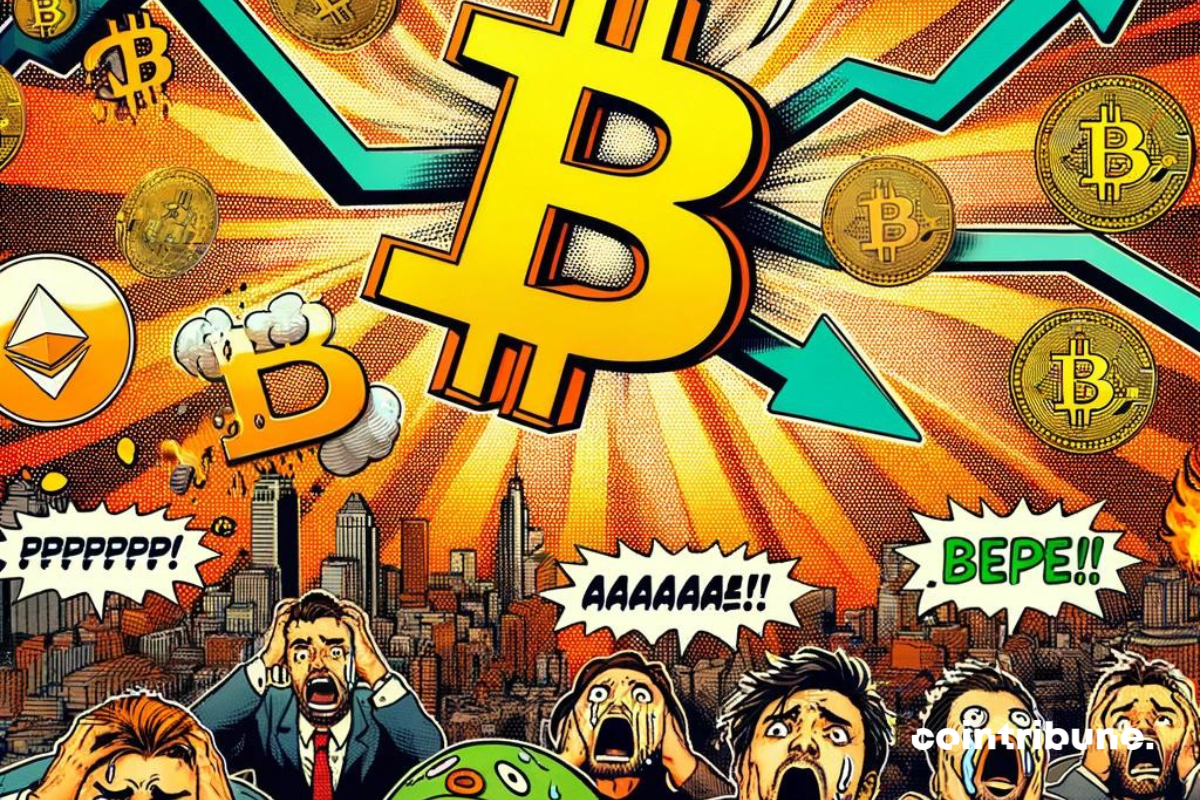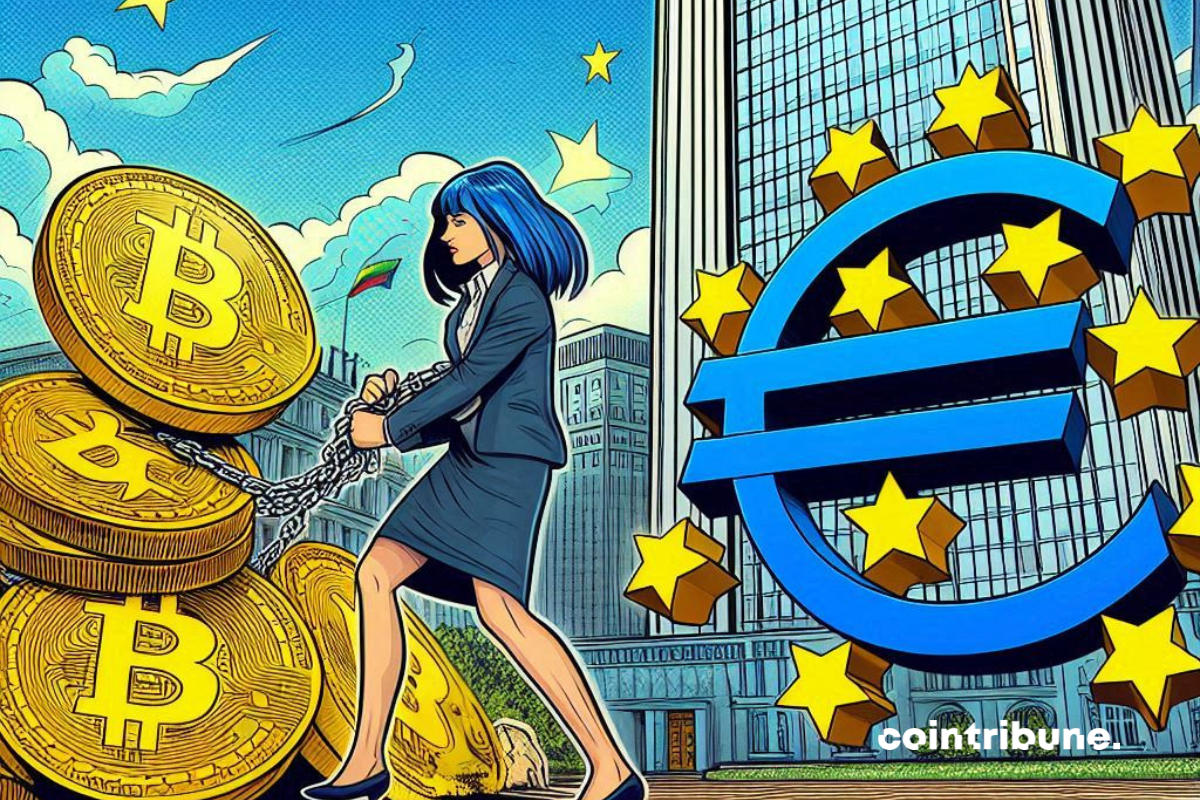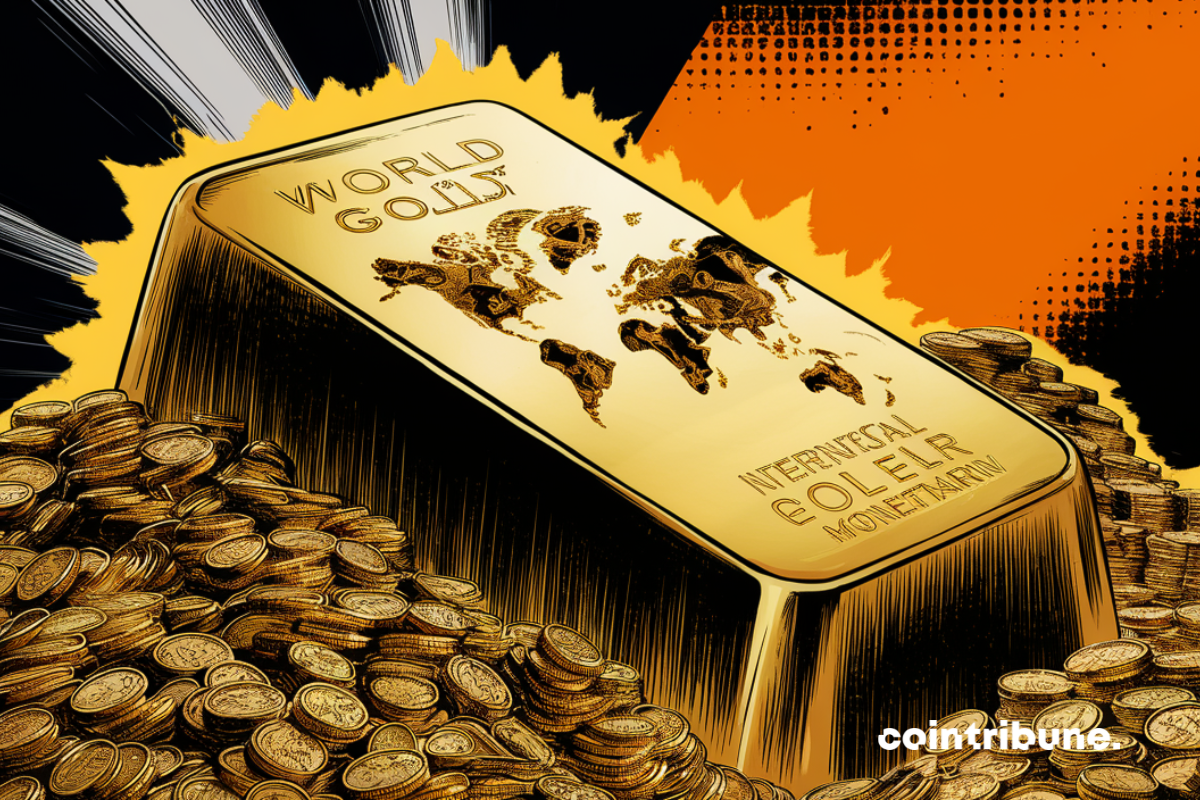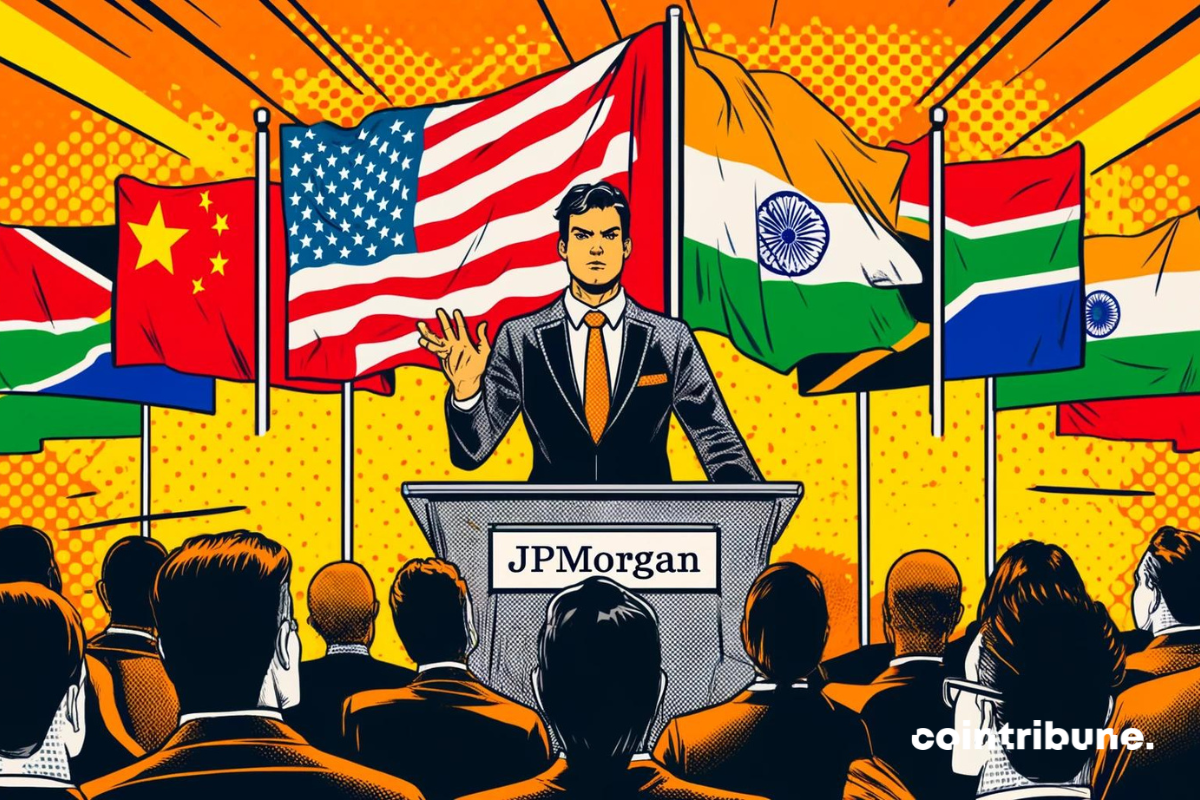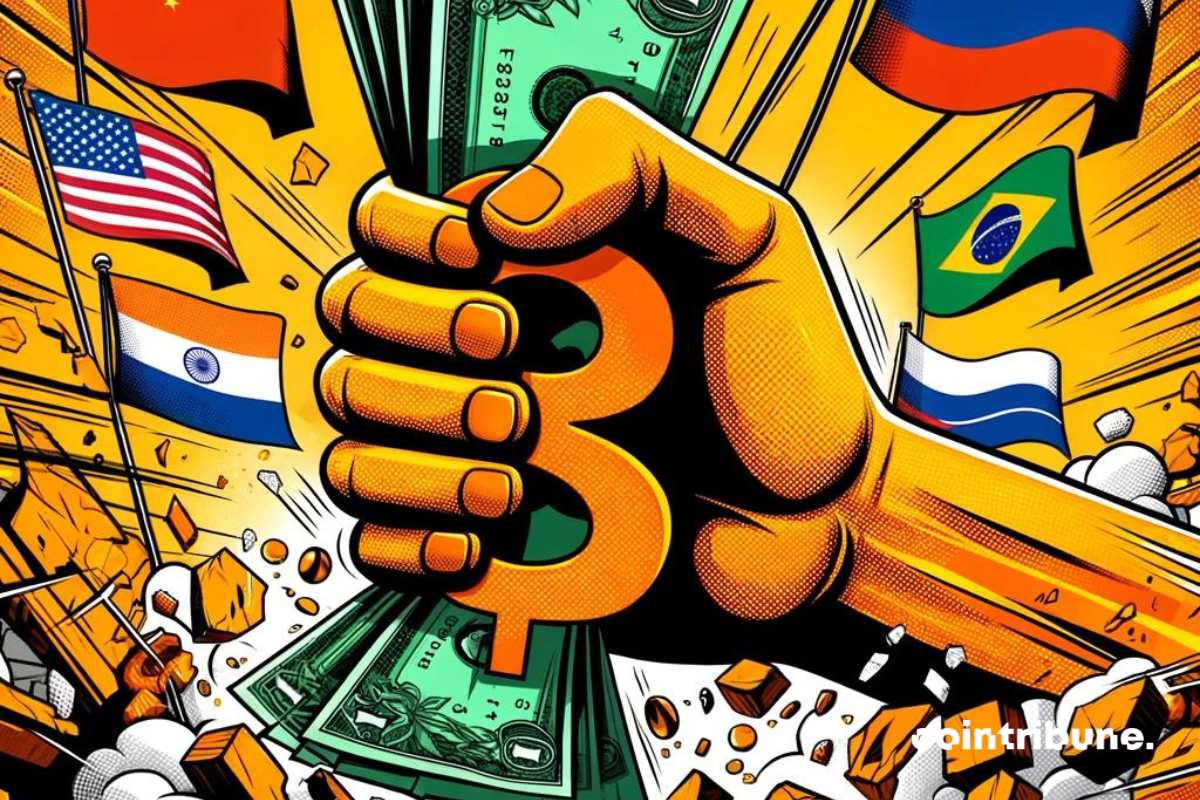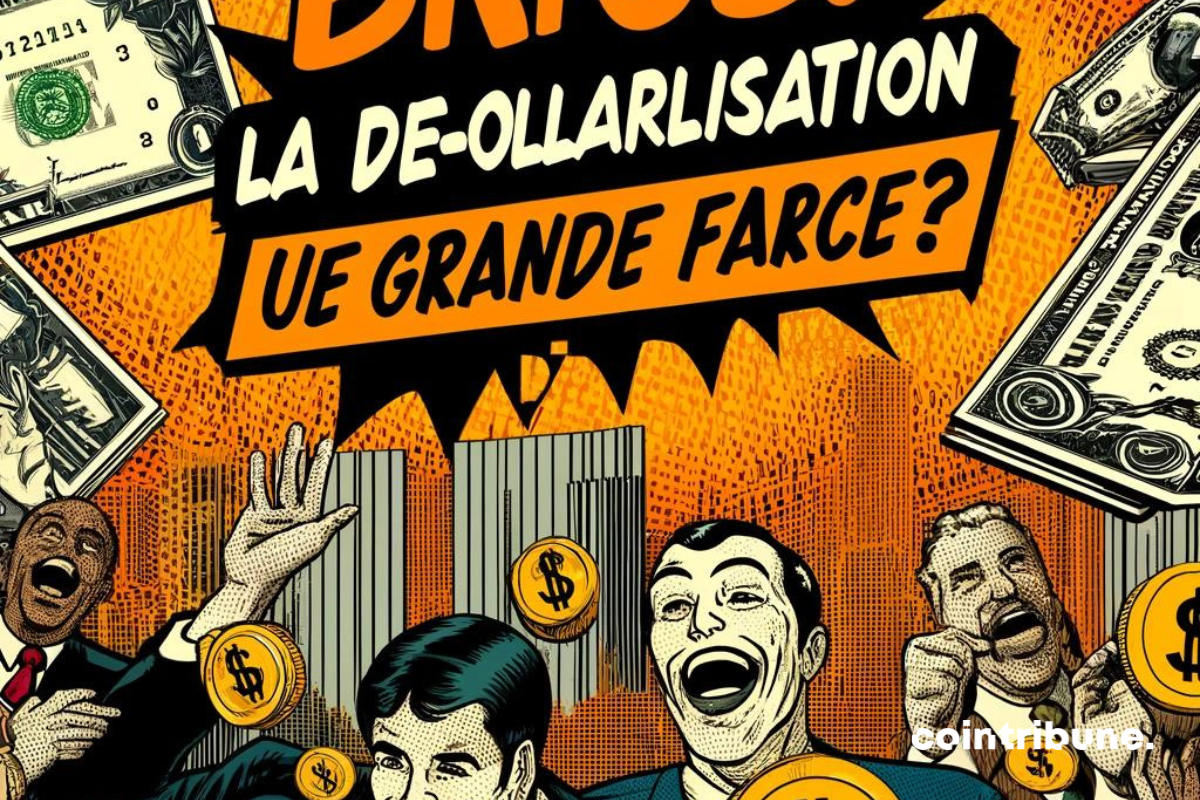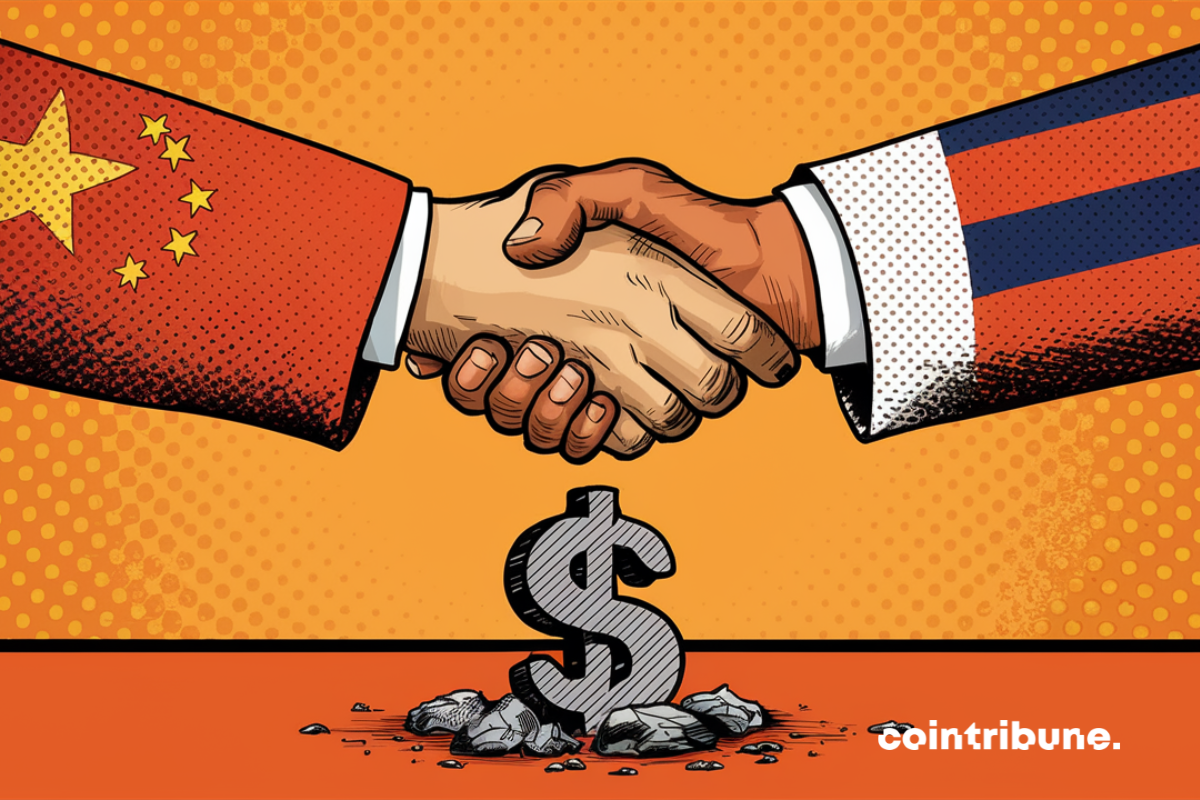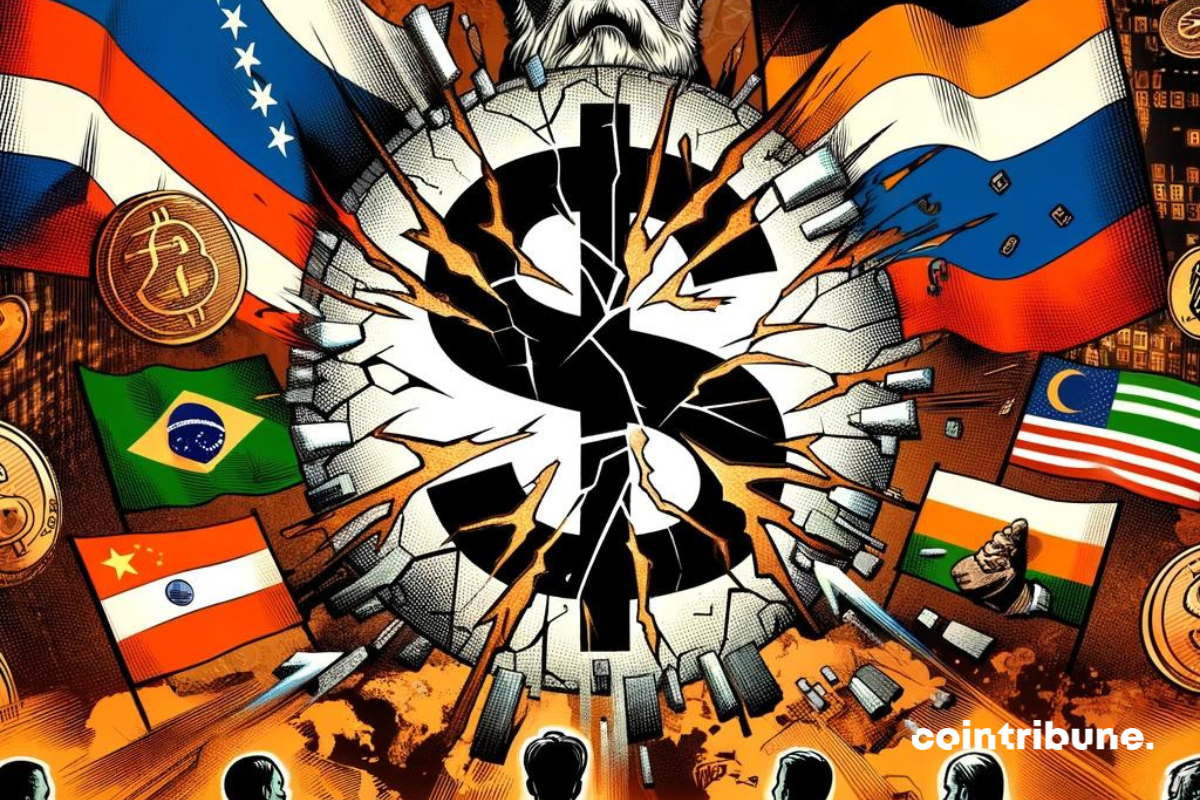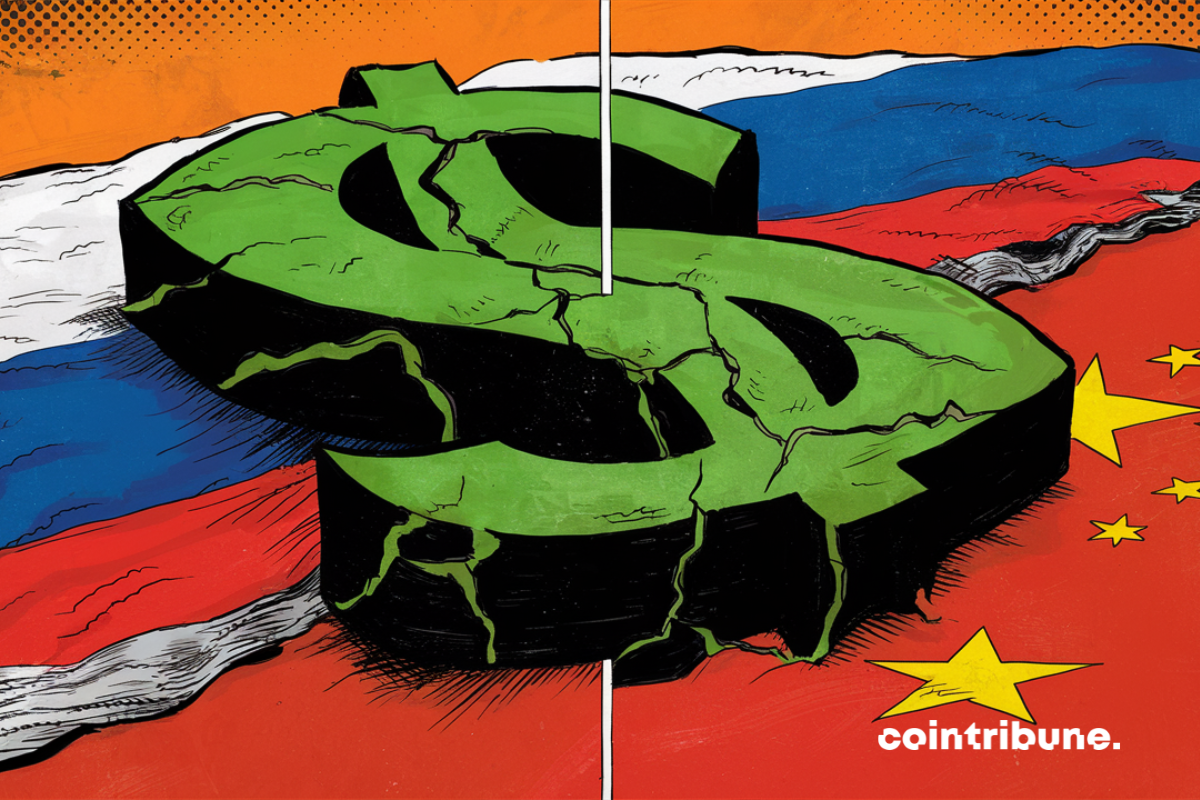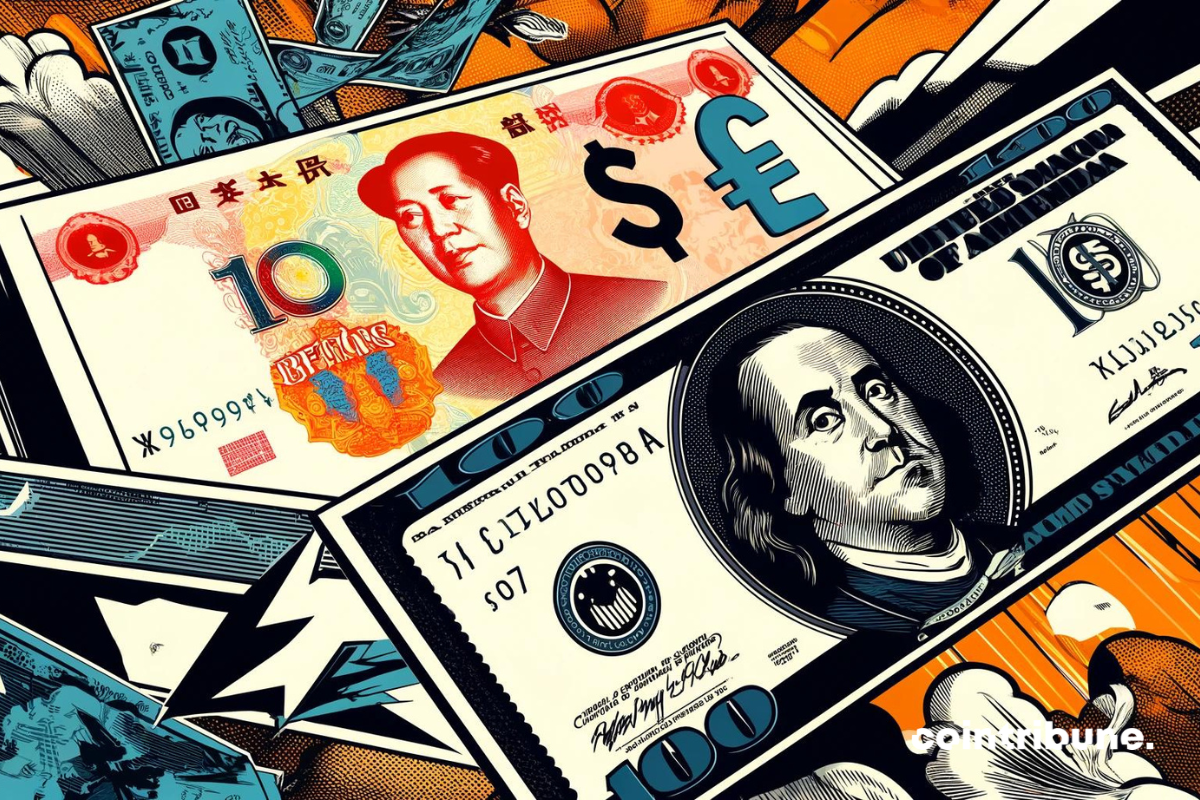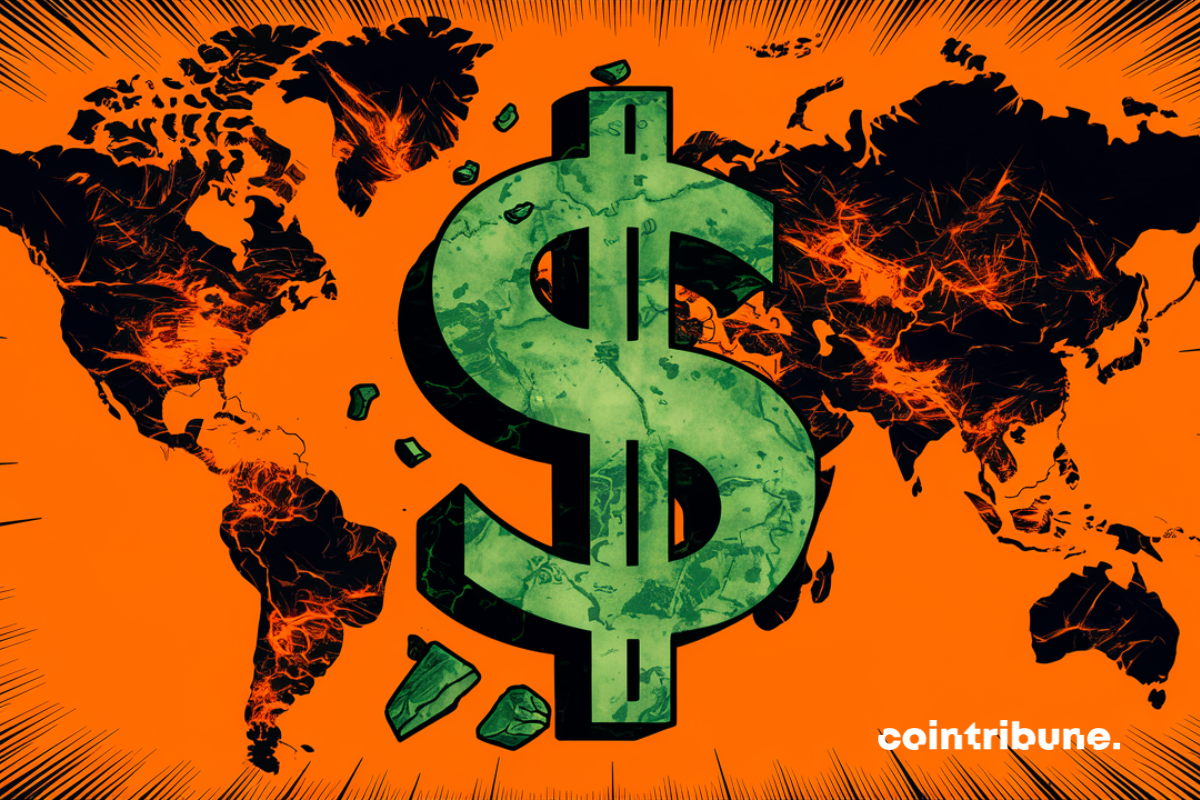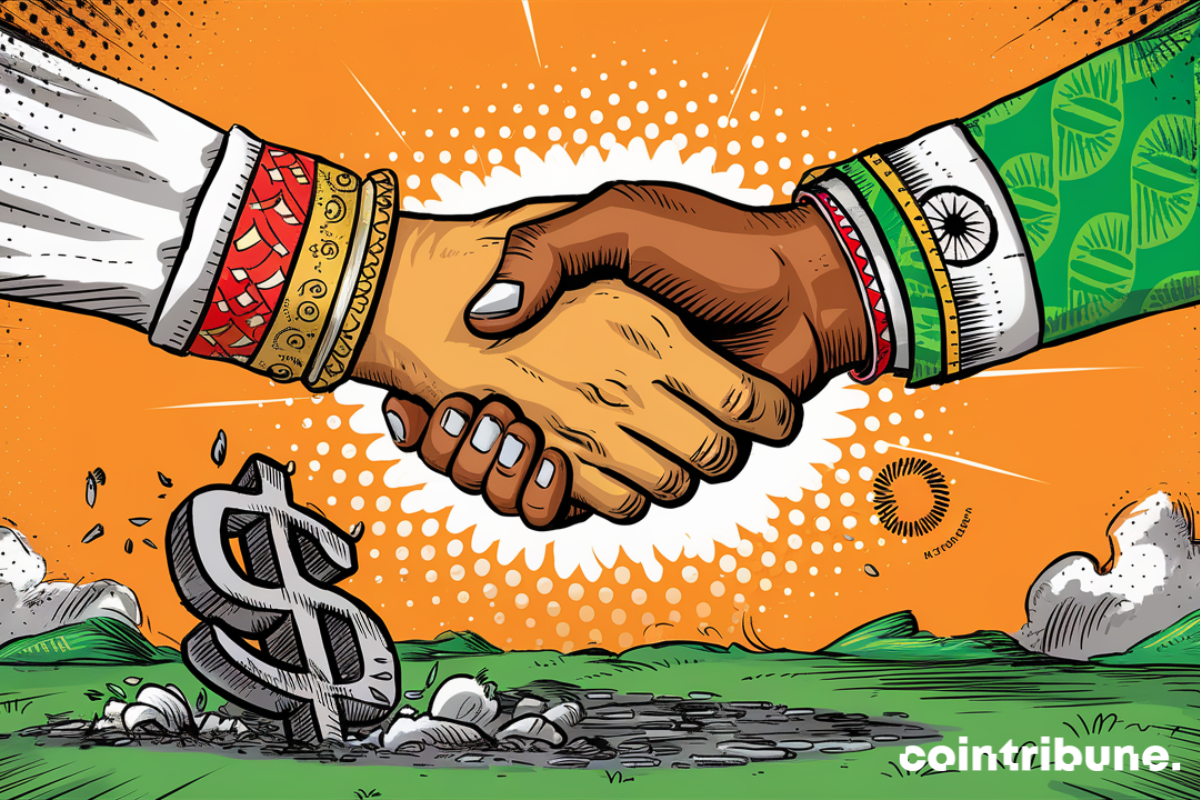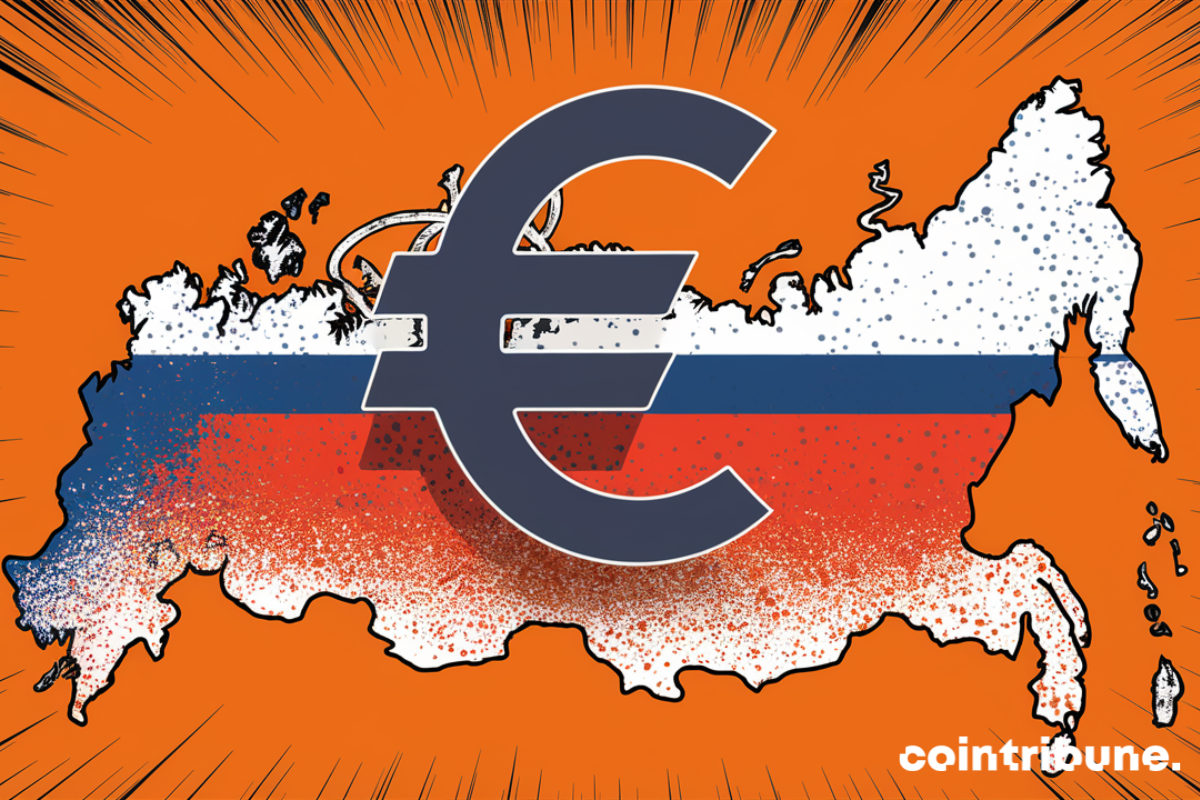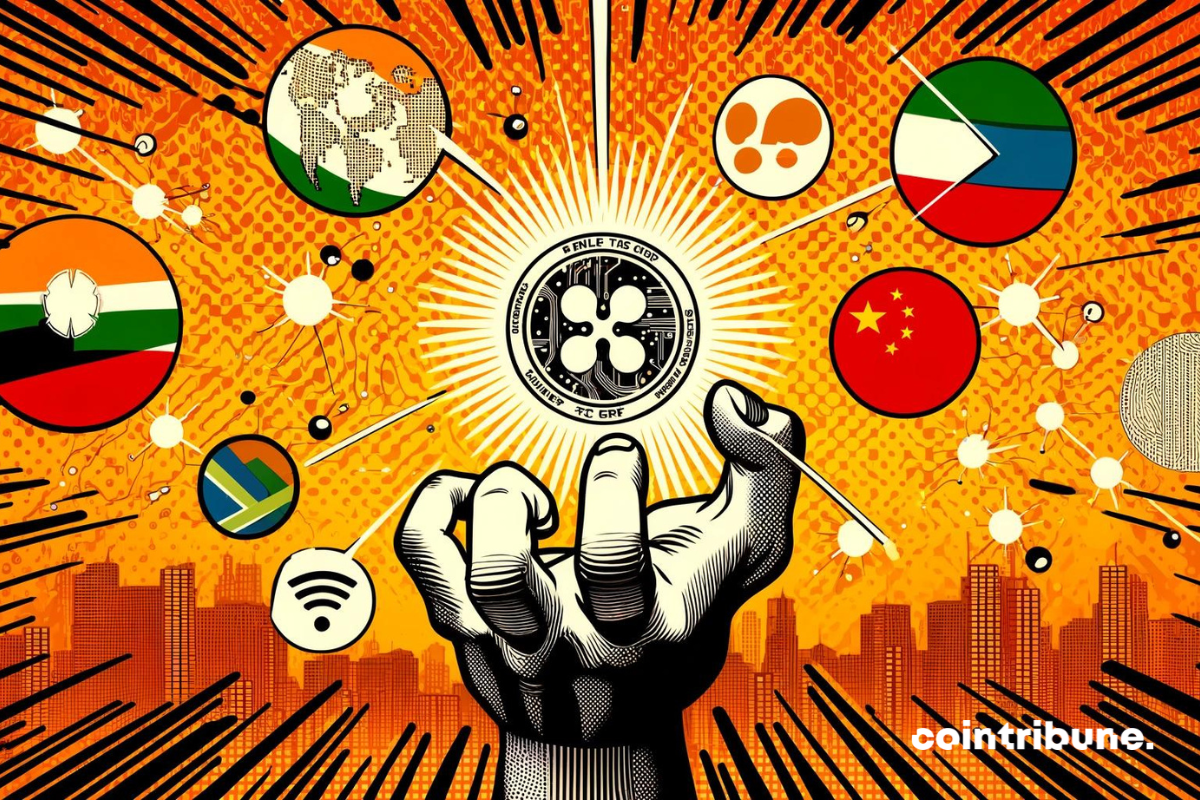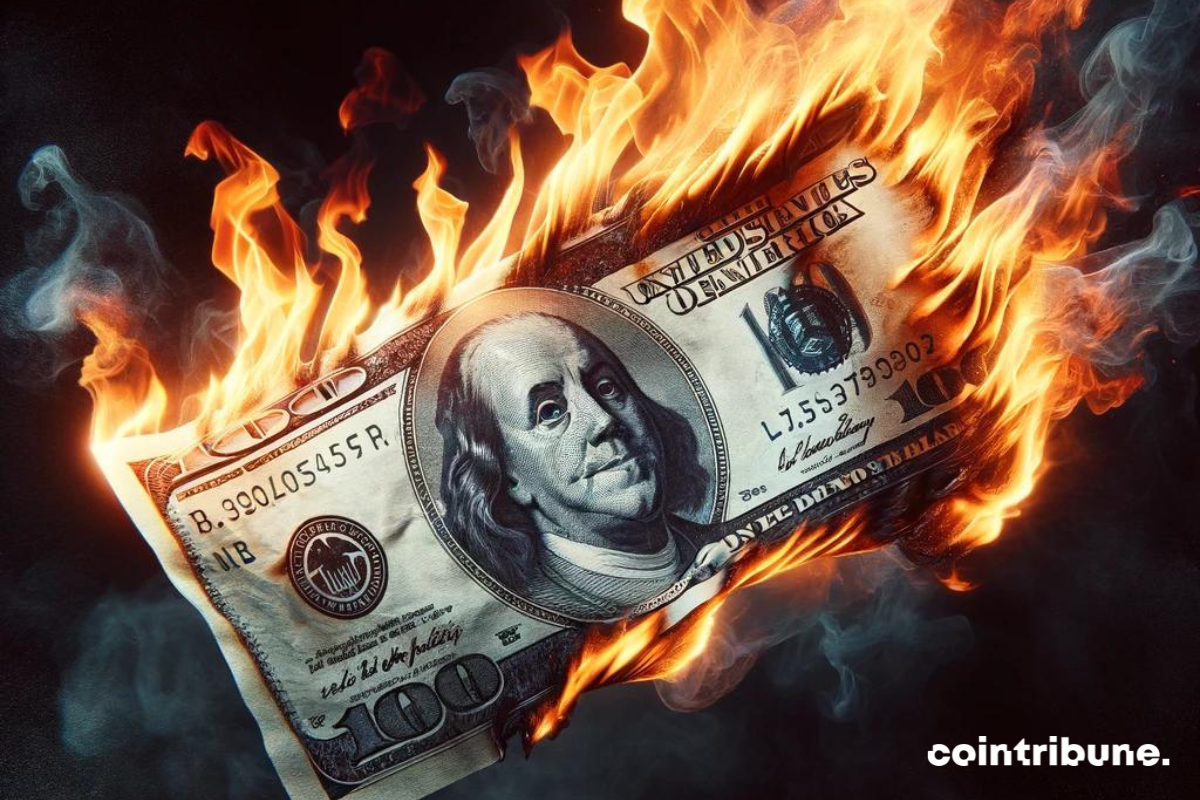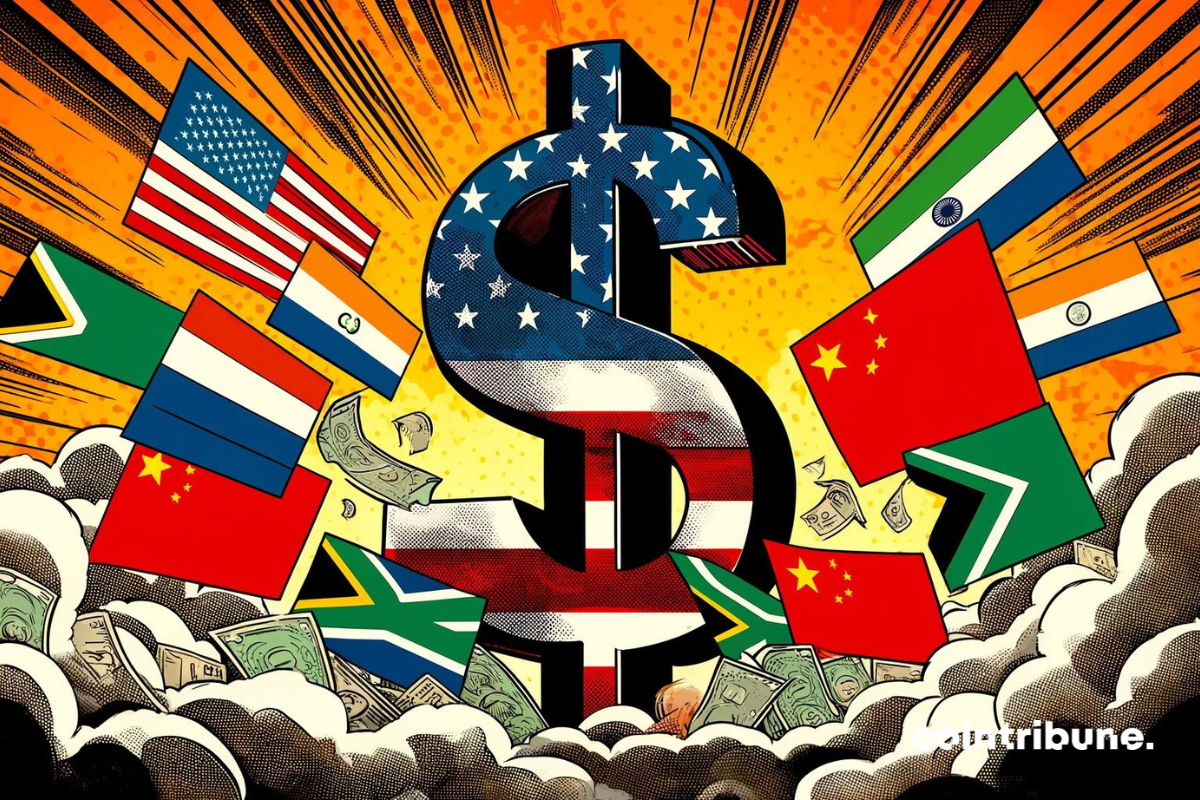The Chinese yuan has been trying for years to dethrone the US dollar as the world's reserve currency. Despite gaining power and making constant efforts, the Chinese currency has not yet succeeded in surpassing the greenback. As de-dollarization gains momentum, the yuan struggles to establish itself as a credible alternative.
Theme Payment
The IMF has published its quarterly update on central banks' foreign exchange reserves. The dollar is free-falling. Bitcoin as an alternative?
Discover how Fortune 500 companies are adopting blockchain and why the United States risks falling behind?
What happens when one of the world's leading financial markets suspends transactions in major global currencies? The Moscow Stock Exchange has just done so in direct response to American economic sanctions. Could this Russian initiative redefine the rules of international trade and global financial relations? Initial reactions and analyses suggest significant changes on the horizon, impacting not only this member of the BRICS, but also the global economic balance.
Saudi Arabia reportedly decided "not to renew its 50-year agreement on the petrodollar with the United States". Will the petro-bitcoin be next?
"The Bretton Woods system is dead," said Vladimir Putin. What if we replaced it with Bitcoin?
Among revolutionary announcements, technological developments, and regulatory turbulence, the crypto ecosystem continues to prove that it is both a territory of limitless innovations and a battlefield of regulatory and economic challenges. Here is a summary of the most significant news from the past week around Bitcoin, Ethereum, Binance, Solana, and Ripple.
A new movement of non-aligned countries is emerging. All gathered under the orange banner of Bitcoin (BTC). Faced with the printing press, can the Bitcoin network represent an alternative as significant as the Soviet Union was to the United States during the Cold War?
The recent interest rate cuts by major central banks worldwide could trigger a new bullish wave for Bitcoin and "shitcoins". Arthur Hayes, co-founder of BitMEX, claims that these movements mark the beginning of a global monetary easing cycle, thus offering significant opportunities for crypto investors.
The Chinese central bank has significantly slowed down its gold purchases in recent months. Is this the beginning of a strategic shift? What about bitcoin?
The latest employment data in the United States has shaken the crypto market, causing a sudden and significant drop in the prices of bitcoin and most altcoins. This news, which surprised many investors, calls into question hopes for an imminent interest rate cut by the Federal Reserve.
The transition to the ECB digital euro aims to curb the crypto phenomenon and the decrease in cash usage.
New Delhi repatriated its gold from England, a sign that a new international monetary order is in the making. Bitcoin lying in wait
The future of the US dollar seems more uncertain than ever after JPMorgan's alarming predictions. Jamie Dimon, its CEO, mentions an inevitable crisis that could disrupt the global economy. The BRICS are cited as major players in this situation. Why such a statement, and what could be the consequences for the global economy?
The BRICS countries are actively working on creating a single currency, a project recently confirmed by Kazem Jalali, the Iranian ambassador to Russia. This initiative aims to reduce global dependence on the US dollar and promises to disrupt the global economy if it comes to fruition. This currency could reshuffle the deck of global economic power, but also deeply impact the dollar. Here are three concrete ways in which the BRICS currency will affect the US dollar.
Liberal democracy seemed invincible, triumphing over the forces of fascism and communism. Two decades later, this supremacy is seriously being called into question. Information dynamics in the technological age and geopolitical alliances are threatening liberal democracy in the 21st century. Are we heading towards communism in the coming years?
De-dollarization, a recurring concept in economic discussions, is the subject of a lively debate. While some view this movement led by the BRICS as an imminent threat to the dominance of the US dollar, eminent experts reject this idea as unfounded. This article explores why the idea of de-dollarization is seen as a "big joke" by some experts.
Beijing and Bangkok will de-dollarize their trade by promoting their national currencies. With CBDCs? What about Bitcoin?
The BRICS were known to be considering a currency. This time, it seems to be truly official. In a strategic move aimed at reshaping the global economy, BRICS countries are actively working on creating a new currency. This development could mark a major turning point in the fight against the dominance of the US dollar and have profound repercussions on international trade. As emerging economies seek to reduce their dependence on the dollar, this initiative appears as a significant challenge to the established economic order, with potential implications for the entire global financial system.
Vladimir Putin used his state visit to China to hammer home that the United States unfairly benefits from the dollar's status as the international reserve currency. Let's use Bitcoin instead.
Several countries, including China, are working to reduce their dependence on the dollar by promoting the use of their own currencies in international transactions. However, despite the ambitious attempts at monetary diversification undertaken by this BRICS member, some experts remain skeptical about their success. According to their analyses, the dollar will withstand external pressures and retain its supremacy over the Chinese currency.
Telega.io, known for pioneering Telegram advertising solutions, is thrilled to share a big update to our payment choices. Starting May 16, immediately after its public unveiling, Telega.io will pioneer the integration of Notcoin as a method of payment, marking a groundbreaking move in the world of Telegram influencer marketing. This development aims to enhance the flexibility and accessibility of digital marketing campaigns on Telegram.
The IMF admits that geopolitical tensions bode ill for the dollar. The BRICS want to cut ties. Why not adopt Bitcoin?
New nail in the coffin of the dollar. India and Nigeria no longer want to trade with the greenback.
Saudi Arabia and other nations like Indonesia warn Europe against seizing Russian foreign reserves. Bitcoin on standby.
The dollar is the Gordian knot of geopolitical tensions. The signals in this direction are now legion. Bitcoin is biding its time.
Stablecoins now seem to have the upper hand over their counterparts in the cross-border transfer scene. According to on-chain data, transactions made with these dollar-backed cryptocurrencies in April reached nearly $2.2 billion over the last 30 days. Based on this data, some experts predict that the volume of transactions in stablecoins could surpass that of Visa during the quarter. Shocked, Visa reacts and shifts the focus of the debate.
The BRICS are multiplying initiatives and pushing the boundaries of the unimaginable. The alliance has accelerated its project to humiliate the US dollar this year by intensifying trade exchanges without the dollar. But a new question has been circulating since the Russian Foreign Minister mentioned the BRICS creating a stablecoin. Could XRP serve as a bridge between the currencies of the alliance member countries? Analysis.
As the crazy growth of the US debt of over 34,600 billion dollars continues to worry, the BRICS deliver a new blow to the greenback. China and Russia, two founding members of the alliance, have planned 260 billion dollars of commercial exchanges without using any US dollars. Only Russian ruble, Chinese yuan, and some euros. Other members of the coalition are expected to follow suit soon. Perceiving the immediacy of the threat, the USA react by combining threats and diplomacy. Details.
As the BRICS alliance intensifies its de-dollarization efforts, the success of this initiative remains uncertain. While several countries are considering joining or already adhering to this movement, the supremacy of the US dollar remains unchallenged. Indeed, despite the coordinated efforts of the BRICS member countries, the dollar continues to outperform the currencies of these nations.

